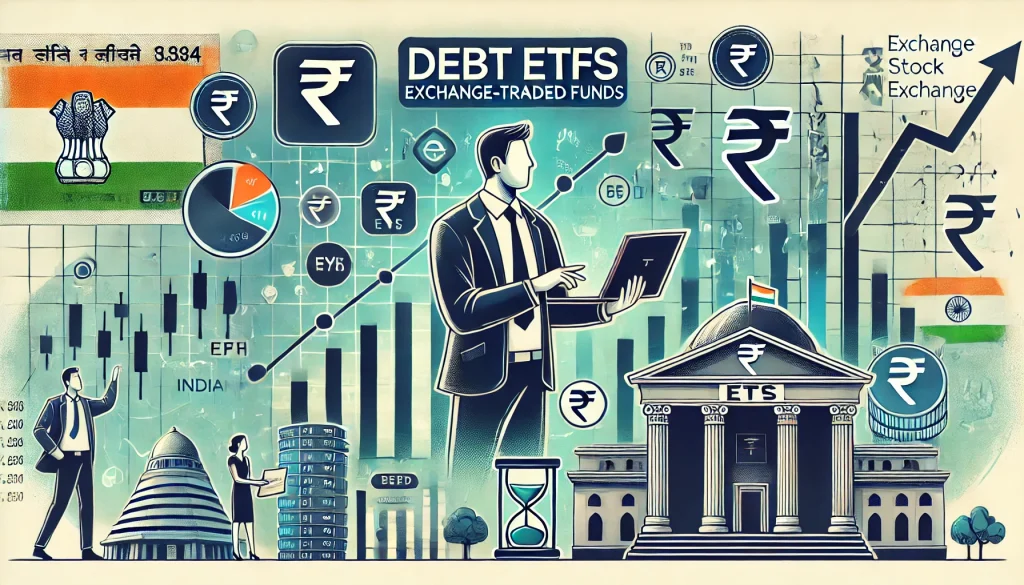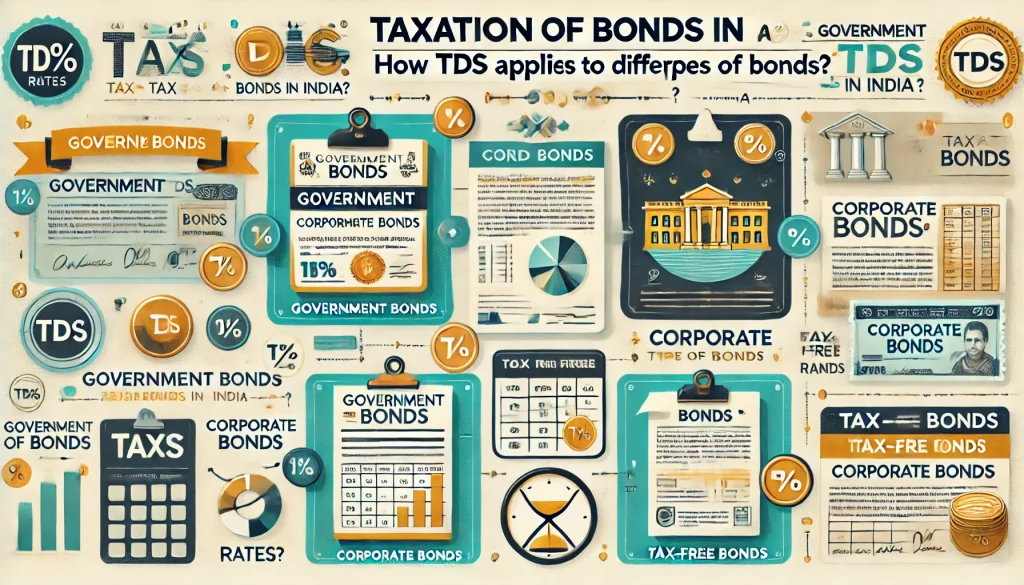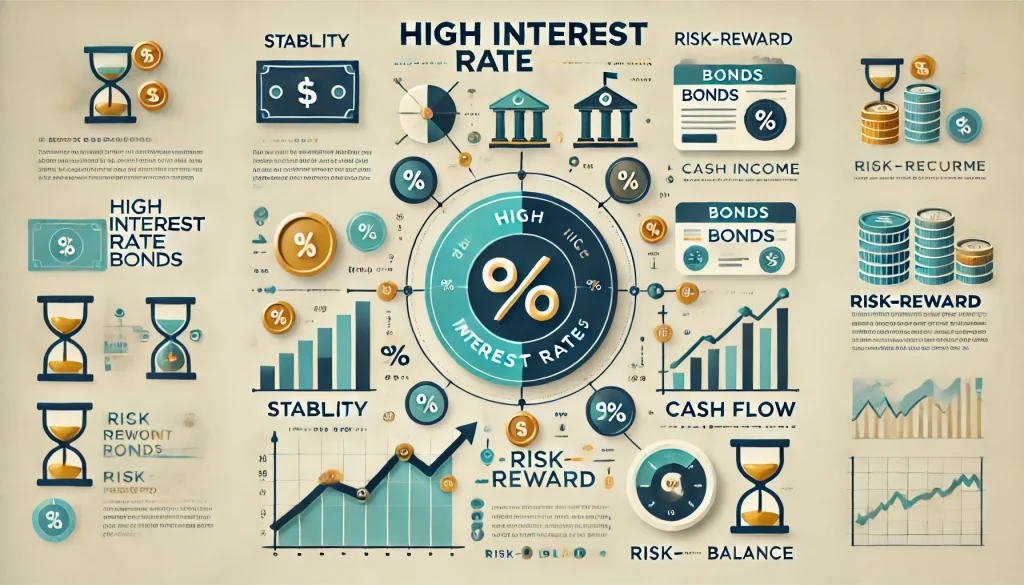
Investing in debt ETFs in India is hassle-free if you have a demat account. However, if you do not have a demat account, you can consider opening one to start your debt ETF investments in India. You can invest in a diversified bond portfolio with debt ETF investments. Learn about debt ETF investment in detail to make informed decisions.
What Are Debt ETFs?
Debt Exchange Traded Funds (ETF) allow investors to invest in a diversified portfolio of debt securities which include municipal bonds or corporate bonds and government bonds. Investors can access fixed-income markets by transacting debt ETFs in stock exchanges.
The value of debt ETFs in India fluctuates based on the changes in bond prices and rates of interest. As a result, these are often referred to as bond ETFs. Debt ETFs render flexibility with a combination of the equity market and mutual funds.
How to Invest in Debt ETFs in India?
You can follow the steps below to invest in a debt ETF in India:
Step 1: If you do not have a demat account, you need to open one. In case you have a demat account, log in using your user credentials.
Step 2: Complete the KYC process.
Step 3: Invest in the debt ETF of your choice.
Step 4: Choose for Intraday/Position.
Benefits of Investing in Debt ETFs in India
Here are some of the benefits you can avail by investing in debt ETFs in India:
- Diversification: Debt ETFs combine multiple fixed-income instruments like bonds with different maturity tenures. This ensures diversification with reduced risk and potentially higher return through a single debt ETF investment.
- Cost Efficiency: As debt ETFs reflect the performance of an underlying index, the cost of maintenance for such funds is relatively low. In addition, these funds offer a lower expense ratio wherein investors can maximise their profits and returns.
- Liquidity: Debt ETFs are listed on Indian stock exchanges. As a result, investors can seamlessly trade in the debt ETFs by buying or selling based on their requirements.
- Transparency: Debt ETF holdings are disclosed periodically and they reflect the underlying index. As a result, investment in debt ETFs ensures transparency.
- Stable Returns: As debt ETFs invest in fixed-income securities, the interest rates are predictable, making the returns stable.
Who Should Invest in Debt ETFs in India?
You can consider investing in a debt ETF if you belong to any of the following categories of investors:
- Income-seeking Investor: If you prefer a stable income from predictable interest earned from fixed-income instruments, you can invest in debt ETFs.
- Risk-averse Investor: If you have a low-risk tolerance, you can consider debt ETFs for investment. These instruments offer diversification, reducing risks for conservative investors.
- Retail Investor: Investors looking for seamless entry to the bond market using demat accounts by trading in the stock exchanges can consider investing in debt ETFs.
Factors to Consider Before Investing in Debt ETFs in India
Prior to investing in debt ETFs, ensure to consider the following aspects:
- Sensitivity to Interest Rate: Be aware of the changes in the interest rate of fixed-income securities, since it can result in price fluctuations for debt ETFs.
- Credit Risk Evaluation: Assess the credit risk carefully, as Debt ETFs include bonds from multiple issuers with diverse credit ratings.
- Underlying Index Performance: The performance of a debt ETF depends on the performance and composition of the index. Ensure to understand the index performance to maximise your debt ETF returns.
Debt ETF Taxation in India
Dividend earned from ETFs is taxable based on the income tax slab of the depositor. In addition, capital gains from ETFs are taxed based on the tenure of holding and type of ETF. Profits from debt ETFs are categorised as short-term capital gains. As a result, these are cumulated to the total annual income and taxed based on the investor’s income tax slab.
Final Word:
A debt ETF in India allows investors to invest in an index comprising fixed-income securities. The predictable interest payments make debt ETFs feasible for low-risk tolerant investors in India. However, ensure that you consider market price and NAV differences while investing in debt ETFs as they lead to discounted or premium prices.


